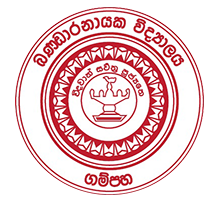Regardless of the project we work on, the Bandaranayake College Computer Society sets clear, specific
objectives.Defining our success metrics before starting a project helps us to maintain a clear focus and
direction.
We applied the same approach to this project, even though we did not recieved the usual
winning
criteria to judge it. Despite this, we proceeded with the project, and with the help of the brief provided, we
established the primary goal of educating visitors on the topic of "Technology and its impact on society".
After defining the objectives of the project, the next step was to identify the human resources required to
achieve them. TeamBCCS is a dynamic team consisting of members with diverse expertise across
multiple industries. This made it challenging for us to form a suitable team.
Upon analyzing our
entire group of team members, we were able to assign a UX & UI Designer, two Front
End Web Developers, and a Copyrighter to this specific peoject. This team, with its balanced skillset,
helped us to achieve our objectives.
After confirming our team, we conducted research to gain clarity on content, visual approach, and user
experience. We even created a user persona to fine tune our art direction for the website.
In addition
to our research, we developed a content strategy that guided us in delivering content on the
topic. Our execution of the website was entirely based on the insights gleaned from our research and the
content strategy.
We then created wireframes to determine the layout, structure, and content placement of the website,
with various design elements and user flows. Starting from low-fidelity wireframes helped us a lot in
terms of saving time. We were able to try multiple styles and pick the best one that matched the
objective.
Once the wireframes were finalized, we roceeded with prototyping to create a high-fidelity
interactive
model that simulated user interactions. This allowed developers to code the website without having to
worry about design stuff.
As mentioned in the brief we used HTML, CSS, and JS to code the website. HTML was used to structure and
organize the content of the website. CSS was used to style the website and provide visual appeal, such as
selecting fonts and colors, defining layouts and positioning, and making the website responsive to
different screen sizes.
Finally, JS was used to add interactive features and functionality and
animations. By utilizing these
programming languages, we were able to bring the design to life and create a functional and visually
appealing website that met the objectives.
Finally, before delivering the end product, we conducted real-time testing on our website to identify any
issues that needed fixing. Through this process, we were able to identify some minor issues with the
website and were able to fix them.
After addressing these issues, we packaged the files and uploaded
them to a Google Drive folder, as
instructed in the brief
Bandaranayake College, Gampaha (Sinhala: බණ්ඩාරනායක විද්යාලය ගම්පහ) is the Premier Buddhist boys' school in
Gampaha,
and one of the Leading boys' schools in the Island, founded on 18 September 1918. The school has a student
population exceeding
5,000. Charles Samarasooriya was the first principal of the school. In 1949, the school was established as the
Henarathgoda Senior Secondary School,
and then it was established as the Henarathgoda Secondary English School at its present location.
When the school was established current location, Jinadasa Munasingha was the principal.
In 1993, this school was promoted as a First Grade School. It had been a mixed school upto 1985. On 25 May
1993,
the school was advanced to the National Level as Bandaranayake College.
